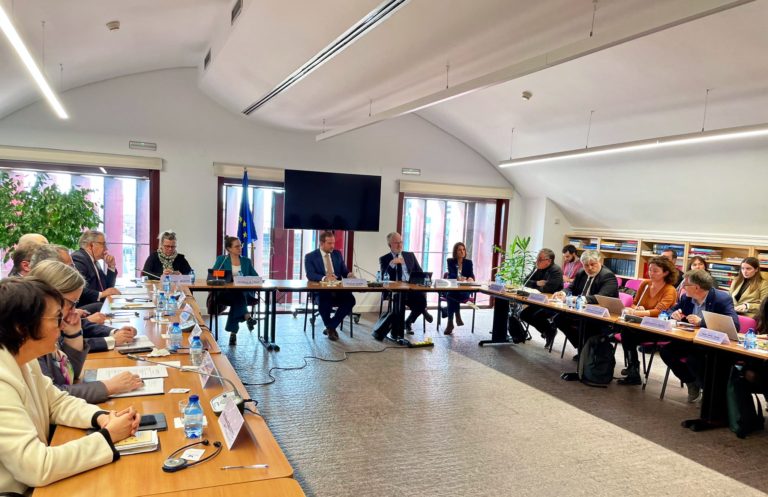
The Pegasus Inquiry Committee of the European Parliament has denounced that there is no evidence of judicial proceedings against the majority of the Catalan espionage victims, in a press conference to conclude their fact-finding trip to Madrid.
The European Parliament inquiry committee for Pegasus spyware has presented the conclusions of their fact-finding mission to Spain this afternoon, remarking that there are only court orders for 18 out of the 65 known victims, and that national security has been used as an excuse to avoid disclosing information to the public.
Rapporteur Sophie In’t Veld stated that the espionage victims are stranded in the system, and that the Spanish definition of national security is too broad. She has thus called on the Spanish authorities to narrow the definition of national security, increase transparency and assure the rights of espionage victims.
In’t Veld also remarked that the espionage has gone on for years, and “if there had truly been an imminent threat for national security, there would have been criminal cases presented, which is not the case”. In that regard, Committee Chair Jeroen Lenaers denounced that “court cases have been dragging on for a long time without action”, and the victims feel that there has been no impartial and neutral investigation. “Victims of spyware deserve more information and transparency”, he affirmed. Moreover, both he and In’t Veld underlined the importance that Europol could have in providing European member states with forensic evidence to advance in the investigation of cases and to assist the victims.
Regarding the Spanish authorities’ criticism of the Citizen Lab report on Catalangate, Sophie In’t Veld noted that it is clear they work according to academic criteria and “all the accusations have been duly refuted”. Only yesterday, the US State Department validated the Citizens Lab reports on the use of Pegasus in Spain against the Catalan pro-independence movement, before the unceasing attempts by the Spanish authorities to discredit the laboratory.
Moreover, the Rapporteur has expressed criticism for the lack of involvement by the Spanish government in sharing information with the Committee. The Spanish authorities’ lack of interest in shining light on the Catalangate affair has been clear from the start, with their attempts to prevent the fact-finding trip to Spain and their refusal for any member of the government to meet with them.
The members of the PEGA Committee have met with experts and certain victims but left aside those of civil society. For this reason, Catalan National Assembly President Dolors Feliu has expressed her utter disappointment for the lack of representation of civil society victims, especially since the communiqué of the United Nations on the espionage by Spain highlighted that the attack on civil society was deeply worrying because it creates a “chilling effect” on political activism and restricts the freedom of expression and assembly.
Last week, the Catalan National Assembly conveyed a letter to the Pegasus Inquiry Committee to denounce Spain’s attempt to boycott and hinder their trip to Madrid, in a joint communiqué with civic organisation Òmnium Cultural and Catalan parties Esquerra, Junts and CUP . The MEPs on the Committee are only Meeting with Catalan victims from the Catalan governing party, which is why we believe they do not represent the broad diversity of Pegasus’ Catalan victims. Only within the Catalan National Assembly, there have been at least six victims, among them former president Elisenda Paluzie.